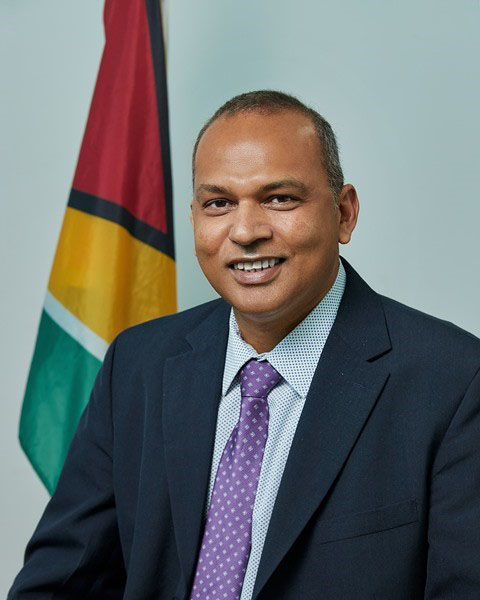Minister of Health, Dr Frank Anthony yesterday said a new Public Health Act is being developed and the first draft is expected within the next few weeks or months.
“The current act is a very old and strange piece of document. We have legislation that is really outdated and we need this legislation to function in a modern world so we have to update it,” Anthony said.
He was at the time delivering the feature address at a workshop which was held at Duke Lodge, Georgetown to exchange and develop ideas towards the drafting of the new legislation.
The Ministry of Health is currently building a world-class health care system but Anthony said that this would not be possible with the “outdated” legislation in place.
“We cannot build a world class health system if the legislation is going to be outdated,” he said.
Anthony said the new Public Health Act has to be drafted to meet the standards of a “modern” society. He noted that the current act is 88 years old.
“…The world has moved on. Science has moved on. There are lots of new things that are happening and if we are going to build this world class health system then our legislative framework would have to meet the standards that we are trying to set and give us that framework,” he explained.
He added that the new Public Health Act should not only deal with diseases but also focus on patient rights.
“People’s concept of patient rights back then was totally different from patient rights today,” Anthony said.
“So health in this particular piece of legislation, it is really a cross-cutting piece of legislation that will help impact almost every sector in our country. What we are trying to do is to have different chapters that address some of these things and modernize our legislation to meet the needs,” he added.
Apart from the Public Health Act, Anthony said a preliminary examination revealed that work needs to be done on over 20 pieces of existing legislation, including the Mental Health Act and the Food and Drug Act.
Anthony said like the Public Health Act, these other pieces of legislation needs to be revised to meet the needs of citizens. “…We have to customize it to suit our unique needs,” he said.
He further noted that the Ministry is aiming to have telemedicine in Guyana and will also have to develop legislation for that.
Similarly, he said the Medical Practitioner’s Act will soon be amended in order to facilitate more medical professionals in Guyana.
In his opening remarks, Advisor to the Minister of Health, Dr Leslie Ramsammy said the Ministry recognized the need for a new Public Health Act for more than two decades. “We have been drafting a public health bill for more than two decades,” he said.
Minister of Health, said a draft bill was developed in a Cabinet Sub-Committee.
Often times, Ramsammy said that the question is asked as to why the old draft cannot be utilised. However, he explained that over the years there have been “many changes” within the health sector, which require a “fresh start”.
“The old public health ordinance was drafted in 1934, the world was still struggling for first generation human rights…..The health sector…must not only protect and respect rights but must promote health,” Ramsammy said.
Meanwhile, Pan American Health Organisation/World Health Organi-sation Representative to Guyana, Dr Luis Codina agreed that the history of Guyana has changed over the years and as such there is a need to change the legislation in the country to cater for the future.
“It’s to catch up what happened in this 88 years…..and also have a vision for the future for the next 20-40 years for Guyana,” he said.
According to Codina, the Public Health Act being 88 years old presents a number of challenges. “We know that NCDs (Non-Communi-cable Diseases) kill 72 percent of the people in this country and in the region and the Caribbean. We need to work on risk factors through legislation,” Codina said.
Legislation, in general, he said needs to be drafted to protect the population. “…We have to put first the health of our people in this region…This aspect of the legislation is very important to reduce and modify the risk factors,” he added.










